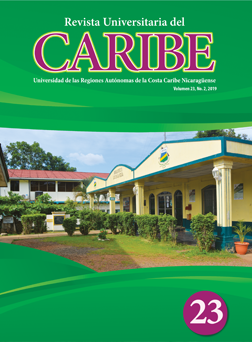The Amawtay Wasi intercultural university of Ecuador, a project caught in the coloniality of power
DOI:
https://doi.org/10.5377/ruc.v23i2.8929Keywords:
Coloniality of Power, Modern nation state, Epistemic apartheid, Intercultura, University, Knowings dialogueAbstract
In the nineties of the last century, a large part of the original peoples of Abya Yala[1] demand before their States the creation of their own higher education space that can be called University. In Ecuador, the creation of the Intercultural University of Indigenous Nationalities and Peoples “Amawtay Wasi” is achieved through the law of the republic in 2004. This is one of the most emblematic projects of the Ecuadorian indigenous movement, whose main promoters were the Confederation of Indigenous Nationalities of Ecuador (CONAIE) and the Scientific Institute of Indigenous Cultures (ICCI). After eight years of surviving the tensions created by a colonial state, through the technical-political argument called "Evaluation", the "Epistemic Apartheid" is applied, closing the University definitively. After four years of resistance to the abuse and regression of rights, President Lenin Moreno offers to restore the right to Higher Education. Indeed, in the context of a "dialogue" and the reform of LOES[2], the University is now recovering as a "Public Communitarian", the same as since the creation of the "Negotiation Commission" where there is only one indigenous member of its seven members, as an originally alternative project it is caught in the tentacles of the "Coloniality of Power"
Downloads
914
HTML (Español (España)) 316
EPUB (Español (España)) 235
Resumen (Audio) (Español (España)) 205
Abstract (Audio) 238
Downloads
Published
How to Cite
Issue
Section
License
Propietario de los derechos de autor de los artículos: Los autores guardan los derechos de autor.

Esta revista está bajo una licencia de Creative Commons Reconocimiento-NoComercial-SinObraDerivada 4.0 Internacional. Esta licencia permite que otros puedan descargar las obras y compartirlas con otras personas, siempre que se reconozca su autoría, pero no se pueden cambiar de ninguna manera ni se pueden utilizar comercialmente.

